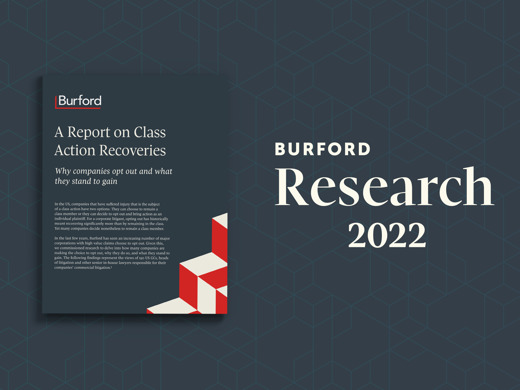A Report on Class Action Recoveries
- Affirmative recoveries




In the US, companies that have suffered injury that is the subject of a class action have two options: They can choose to remain a class member or they can decide to opt out and bring action as an individual plai…